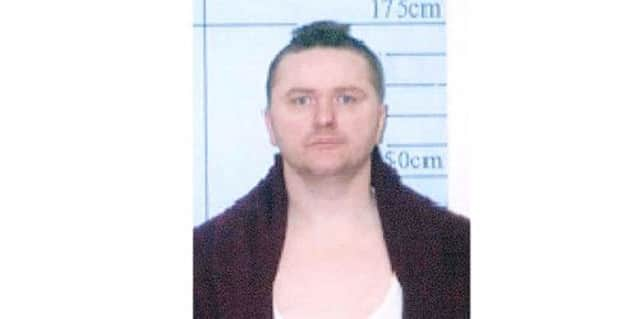Killers’ fight to vote while in jail rejected


Scottish murderer George McGeoch and child killer Peter Chester were also told they could not seek damages or appeal to the European Court of Justice.
The ruling was welcomed by Prime Minister David Cameron – who previously said the thought of prisoners voting made him “physically sick” – as a “great victory for common sense”.
Advertisement
Hide AdAdvertisement
Hide AdThe Scottish Government has also made clear it will not give prisoners voting rights in the independence referendum.
Critically, the judges rejected the submission that they should “disapply the whole of the legislative prohibition on prisoner voting” – meaning that as it could not be argued all prisoners should be able to vote, it could not be the case that any can.
McGeoch, from Glasgow, is serving a life sentence for the 1998 murder of Eric Innes in Inverness. Chester, who is in his fifties, is serving life for raping and strangling seven-year-old Donna Marie Gillbanks in Blackpool in 1977. The UK government believes it is backed by public opinion, and that people would be horrified if such criminals were able to vote.
However, the UK’s most senior judges warned that the government remains on a collision course with the European court in Strasbourg. They rejected an argument by Attorney General Dominic Grieve QC that they should ignore previous rulings on prisoner voting by the European court.
Lord Mance said: “I would reject the suggestion that the Supreme Court should refuse to apply the principles stated in the Strasbourg case-law in the present circumstances. Deep though the ‘philosophical differences of view between reasonable people’ may be on this point, it would in my opinion exaggerate their legal and social importance to regard them as going to ‘some fundamental substantive or procedural aspect of our law’.”
Lord Sumption added: “We would be justified in departing from the case-law of the Strasbourg court only if the disenfranchisement of convicted prisoners could be categorised as a fundamental feature of the law of the United Kingdom.
“I would regard that as an extreme suggestion, and in agreement with Lord Mance, I would reject it.”
However, the court stopped short of telling the government how it should settle its difference with Strasbourg. Lord Mance said: “The creation of any new scheme [on which types of prisoners could vote and how many] must be a matter for the UK parliament.”
Advertisement
Hide AdAdvertisement
Hide AdBut Tony Kelly, the lawyer representing McGeoch, warned the government cannot continue to employ a blanket ban.
READ MORE